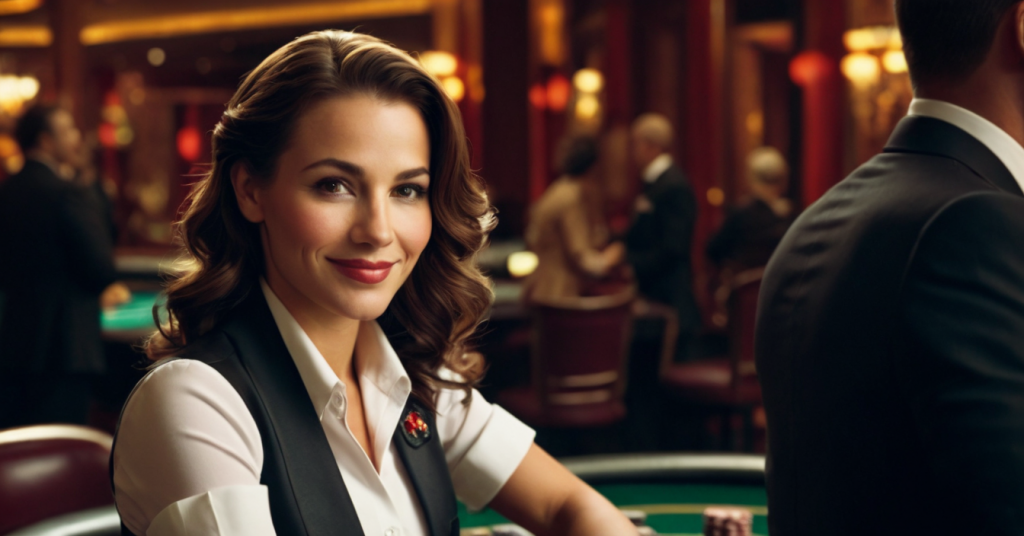When you step into a casino, the allure of flashing lights, chiming slot machines, and the buzz of excitement might draw you toward the tables. But there’s one game that stands out for its combination of skill, strategy, and just enough chance to keep things interesting: the blackjack casino game. Sure, you’ve probably heard the basics—get as close to 21 as possible without busting. But trust me, there’s so much more beneath the surface. What if I told you that blackjack is more like a dance, where the rhythm of the cards syncs with your decisions? Sounds intriguing, right? Let’s dive deep into this fascinating game, uncover its lesser-known nuances, and maybe even stir a few personal experiences that could change how you play.
Why Blackjack Isn’t Just Another Casino Game
Some might say blackjack is “just a card game,” but that phrase does it a grave injustice. In reality, blackjack is a microcosm of life itself—every decision you make, every choice to hit, stand, or split, reflects the delicate balance between risk and reward. Unlike many other casino games that depend purely on chance, the blackjack casino game hands over the reins to you. You have control. Or at least, you think you do.
When I was younger, my uncle taught me blackjack during a family vacation. We didn’t play for money, but the stakes felt high nonetheless. With every hand, he would pause, look at me, and ask, “Are you sure about that decision?” It was as if every card carried the weight of life’s larger uncertainties. That experience changed how I viewed not just blackjack but decision-making in general. To this day, every blackjack hand feels like a conversation—one between me, the dealer, and the cards.
Blackjack: The Dance Between Math and Instinct
Unlike slots, which leave everything to fate, blackjack is a blend of mathematics and gut instinct. Now, I won’t bore you with complicated probability theories, but let’s just say, behind every card dealt, there’s a small army of math equations working behind the scenes. Each decision—whether to hit on 16 or stand on 12—affects the probability of success. But here’s the catch: math isn’t everything.
I remember sitting at a blackjack table in Las Vegas one summer, feeling the cool air of the casino brush against my face. The cards were not in my favor. I had a hard 16 against the dealer’s 10. The “by-the-book” move was to hit, but something inside me screamed, “Stand!” Ignoring my better judgment, I followed the strategy and hit—busted instantly. It wasn’t just a loss; it was a lesson. Blackjack isn’t just about what’s in front of you; sometimes, it’s about trusting that inexplicable gut feeling.
The Psychology of Blackjack: Reading People, Not Just Cards

Most players focus on the cards, but an underrated aspect of the blackjack casino game is reading the room. There’s a psychological element that often goes unnoticed. People reveal more about themselves in how they react to the game than in any poker face they might try to maintain.
Once, I sat next to a player who was visibly agitated. He was down significantly and began making erratic bets. His body language screamed desperation. What struck me, though, was the ripple effect he had on the table. Other players, myself included, began second-guessing our decisions, affected by his energy. In blackjack, you’re not just playing the cards; you’re playing against human nature.
So, next time you find yourself at a blackjack table, don’t just glance at the dealer’s hand. Look around. Watch how people react to a bust, a blackjack, or even a simple hit. You’ll learn more about them—and perhaps yourself—than you expect.
Bankroll Management: The Silent Partner in Success
You could be the best player at the table, but if your bankroll strategy is weak, the blackjack casino game will quickly humble you. One of the most underappreciated aspects of blackjack is how well you manage your money. It’s not just about making the right plays; it’s about ensuring you can keep playing.
During a trip to Atlantic City, I had a modest budget of $200 for a night of blackjack. My strategy was simple: bet small, play long. A couple at the table next to me, however, had a different approach. They started with $500 each and placed massive bets right from the beginning. Within 45 minutes, they were out, their chairs empty, leaving the table in silence. I, on the other hand, played for hours, not because I was winning big, but because I was managing my bankroll wisely. That’s when I learned the golden rule of blackjack: it’s not about how much you win in the short term; it’s about how long you can stay in the game.
The Art of Card Counting: Not Just for the Pros
Ah, card counting—the infamous strategy romanticized in Hollywood films like 21. Let me clear up a misconception: card counting isn’t some mystical ability that only mathematical prodigies can master. It’s a skill, and like any skill, it can be learned and refined. But here’s the kicker—contrary to popular belief, card counting won’t guarantee you’ll win every hand. It merely shifts the odds ever so slightly in your favor.
I once tried my hand at card counting during a quiet evening at a small local casino. I wasn’t looking to make big bucks, just to see if I could do it. I kept track, adjusting my bets as the deck got “hotter.” Did I win a fortune? Hardly. But the thrill of knowing I had a slight edge over the house was exhilarating. The truth is, card counting isn’t about cheating—it’s about paying attention, staying disciplined, and making calculated decisions.
Myth-Busting: Common Misconceptions in Blackjack

Now, let’s talk about the myths that surround the blackjack casino game. First off, many believe that blackjack tables are designed to “cheat” players by dealing cards in a way that ensures losses. This couldn’t be further from the truth. In fact, blackjack is one of the few casino games where the house edge can be minimized significantly if you play smart.
Another myth? People think the goal is to get as close to 21 as possible every hand. Newsflash: sometimes, aiming for 21 can be a trap. Knowing when to hold a lower hand, like 14 or 15, can be the real difference between walking away a winner or walking away broke.
Blackjack Variations: Spicing Up the Classic
If you think you’ve mastered the classic blackjack casino game, think again. There are countless variations designed to challenge your skills and test your adaptability. From Spanish 21 to Pontoon, these alternatives bring fresh twists that keep the game interesting.
I once played a version called Double Exposure, where both of the dealer’s cards are dealt face up. It sounds easy, right? But this version comes with its own set of rules that tilt the odds back in the house’s favor. Still, the thrill of seeing both dealer’s cards added a psychological twist that the standard game didn’t have.
Blackjack’s Life Lessons and Final Thoughts
In the grand scheme of casino games, the blackjack casino game is more than just a way to make or lose money—it’s a reflection of life’s complexities. The game teaches patience, discipline, and the importance of making informed decisions. Whether you’re the casual player who enjoys the occasional hand or a seasoned pro who counts cards with ease, blackjack offers something valuable to everyone.
The next time you sit down at a blackjack table, remember: it’s not just a game of cards. It’s a game of people, psychology, strategy, and yes, a little bit of luck. As with life, every hand offers you a new opportunity to learn, to grow, and to make choices that will shape the outcome. So, play smart, trust your gut, and enjoy the dance between strategy and chance that makes blackjack so unique.

